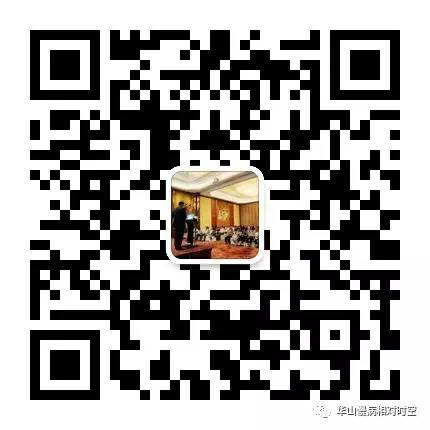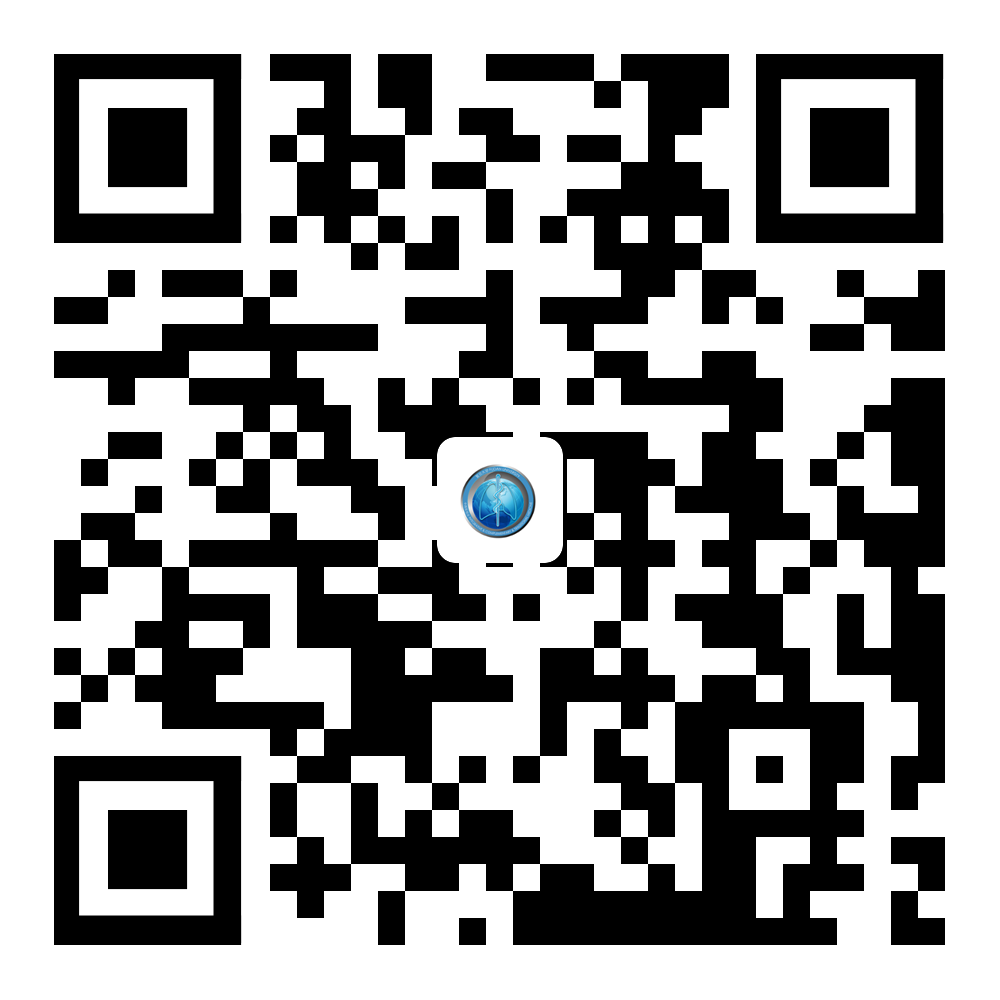Interview with Dong Jingcheng: Chinese traditional medicine in the modern times
In 2018, traditional medicine has been officially subsumed under the International Classification of Diseases, the diagnostic standard for reporting diseases and health conditions maintained by World Health Organization. Since then, the development of traditional medicine has entered a new stage.
The incoming World Traditional Medicine Day (on October 22) celebrates the increasingly significant role of traditional medicine in the development of human health care. It has also drawn our attention to traditional medicine development in the modern times and those unsung doctors and scholars who have been constantly pursuing and promoting this time-honored medical practice.
Recently, a 1,000,000-character book A Comparative Study of Chinese Traditional Medicine has come into our sight with an eye-catching sales record on the Chinese e-commerce platforms Dangdang and JD, which is quite extraordinary for academic books.
Instilled with years of practice and reflection of the author and his team, the book not only brings new knowledge and insights to medical professionals, but also provides non-professionals with detailed introduction to the development of traditional medicine and modern medicine in China. To some extent, the book reveals and concludes the author and his team’s efforts in the application and promotion of integrative medicine in China, which may also offer illuminating ideas to the global development of integrative medicine.
As the author of the bestseller and one of the pioneering figures in integrative medicine in China, Professor Dong Jingcheng has a story as inspiring as the book itself.
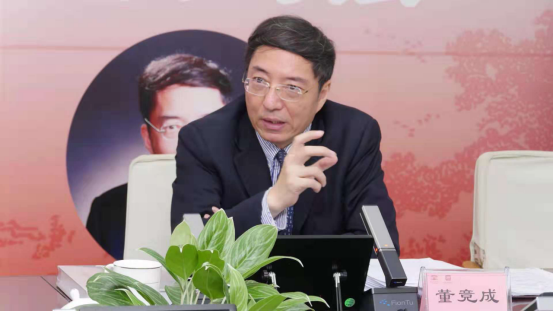
Prof. Dong Jingcheng
Dong, director of the Institutes of Integrative Medicine at Fudan University and director of the Department of Integrative Medicine at Huashan Hospital Affiliated to Fudan University, specializes in the application of integrated traditional and western medicine for the diagnosis and treatment of tumor, lung disease, and geriatric conditions.
With long-standing enthusiasm in the traditional Chineseherbal remedies, comparative cross-ethnic traditional medicine and the conceptual framework of Chinese traditional medicine, Dong has published a total of over 230 papers, 80 of which in SCI journals. He also owns 6 patents and software copyrights and was awarded 6 times at the provincial level or above.
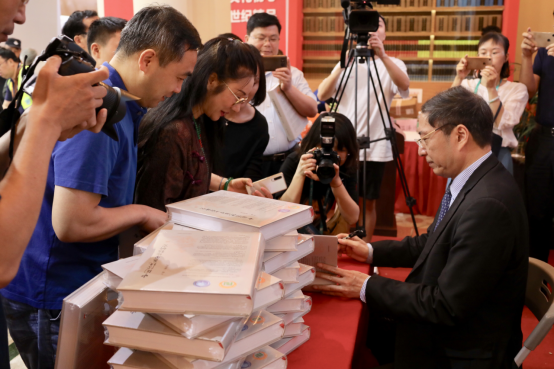
Prof. Dong (R) at the book signing ceremony for A Comparative Study of Chinese Traditional Medicine
Redefining and expanding the concept of Chinese traditional medicine
In the past decades, what have driven the lasting pursuits of Dong and his team in integrative medicine research are questions like these: How to preserve and utilize the essence of ancient traditions and cultures of traditional medicine while removing those useless and misleading ideas? How to make traditional medicine more accessible by combining it with modern medicine among the public both at home and abroad? How to absorb and integrate medical traditions from various Chinese ethnic groups?
However, what they are facing is not only the complicated and various medical traditions embedded in numerous Chinese ethnic groups due to regional and ethnic disparity and cultural diversity, but also the difficulty of making inclusive conclusions and comprehensive application based on their clinical experience, as well as the challenge of making Chinese traditional medicine understood and accepted by more people.
In effect, the new book by Dong and his team offers a new comprehensive and conclusive framework for integrative medicine research, including conceptssuch asChinese Traditional Medicine (“Dà Zhōng Yī”), Trichotomy(“Sān Fēn Fǎ”), Five Key Elements (“Wǔ Yào Sù”), Two-level Cognition(“Liǎng Céng Miàn”), Three-dimensional Integration (“Sān Róng Hé”) and Six-stage Development(“Liù Jiē Duàn”). These conclusions, based on past research and clinical experience, are Dong and his team’s attempts to answer the questions above.
The discussion on ethnic traditions and cultural issues in the book has much to do with Dong’s visit to Xinjiang province. During this visit, Dong looked closely into Uyghur Medicine and further learned the medical traditions of Uyghur people.
It was also this trip to Xinjiang that has brought Dong in-depth thinking on the ethnic and cultural diversity embedded in traditional medicine. “Han Medicine is a key part laying foundation for Chinese traditional medicine, but the medical traditions of different Chinese ethnic groups, such as Uyghur Medicine, Tibetan Medicine, Dai Medicine, etc., also comprise important aspects of the traditional medicine in China, so sharing effective and essential elements of different ethnic traditions is beneficial to the exchanges betweenthese ethnic groups and the progress of the discipline,” said Dong.
In terms of ethnic and cultural diversity reflected in medical traditions, Dong proposed the concept of Five Key Elements(“Wǔ Yào Sù”), namely clinicalexperience, primitive medical knowledge, ancient philosophy, regional culture,group beliefs, which concludes the basic features of Chinese traditional medicine. While the first two elements constitute the technical part of their medical traditions, the rest are the cultural components.
Being aware of the peculiarity of traditional medicine, in the past seven years, Dong and his team have been dedicated to holding and organizing the international symposiums on ethnic traditional medicine and modern medicine. These gatherings have enhanced the communication of scholarly opinions on ethnic traditions which is an ethnically and regionally comprehensive concept.
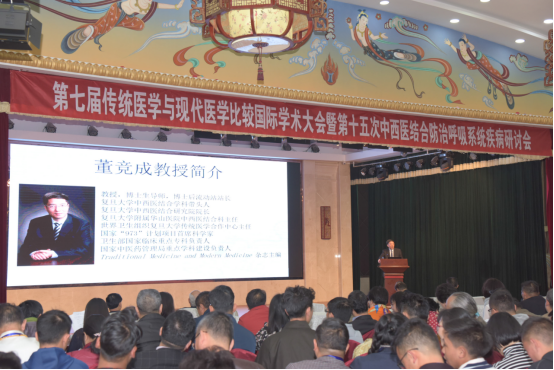
The 7th International Academic Conference on Comparison of Traditional Medicine and Modern Medicine
Two years ago, the journal Traditional Medicine and Modern Medicine was set up by Dong and his team from Institutes of Integrative Medicine of Fudan University. This journal publishes the global frontier research in integrative medicine, thus inviting worldwide innovative professional perspectives and enhancing academic exchanges.
Efforts like these have contributed to realizing the goal of Three-dimensional Integration (“Sān Róng Hé”), namely the integration of traditional medicines among China’s ethnic groups, the integration of traditional medicines from around the world, and the integration of the traditional medicine and modern medicine.
The very start for this master of integrative medicine
For Dong, what he has long been doing is actually his initial ideal as a teenager. The professor and doctor said he was lucky enough to have the chance of taking the National College Entrance Exam in 1978, the 2nd year after the recovery of the Exam. Dong was interested in becoming either a doctor or a teacher before the Exam, and now, as a doctor and professor, he has realized his initial dream and even become a trailblazer in his specialization.
When talking about his past as a university student, Dong was grateful to his supervisor Shen Ziyin, CAS Academician and pioneer inintegrative medicine.At that time, Dong still had little idea about what research field he should go for until he studied Shen’s research on integrative medicine.
“I have been very interested in my supervisor’s research since I read his paper for the first time, and I thought there was much room for development in this promising discipline and it became my life-long career,” Dong smiled and said,“later when I talked to my supervisor about my ideas on the traditional medicine research, his comment was positive and encouraging.”
Nonetheless, an inspiring starting point would be nothing without ensuing efforts. When asked what was the most difficult for him during the past decades of medical research, Dong thought for a while and put it slightly,“Probably the lasting loneliness.” He added, “When you try to do something innovative and different, you have to bear solitude. You may even be questioned and your research resisted by others because you want to demonstrate ethnic medical traditions by breaking the boundaries in-between.”
As a medical top-notch, the sixty-year old doctor still offers “general expert outpatient sessions” five times a week at four hospitals. These hospitals are located far from each other. Despite travel hassles alongside the tasks of conducting research with his team members and giving lectures to undergraduates and graduates, such a busy schedule which Dong has long stuck to enables him to effectively instruct his team members in different hospitals and help improve young doctors’ practical skills in diagnosis and treatment.
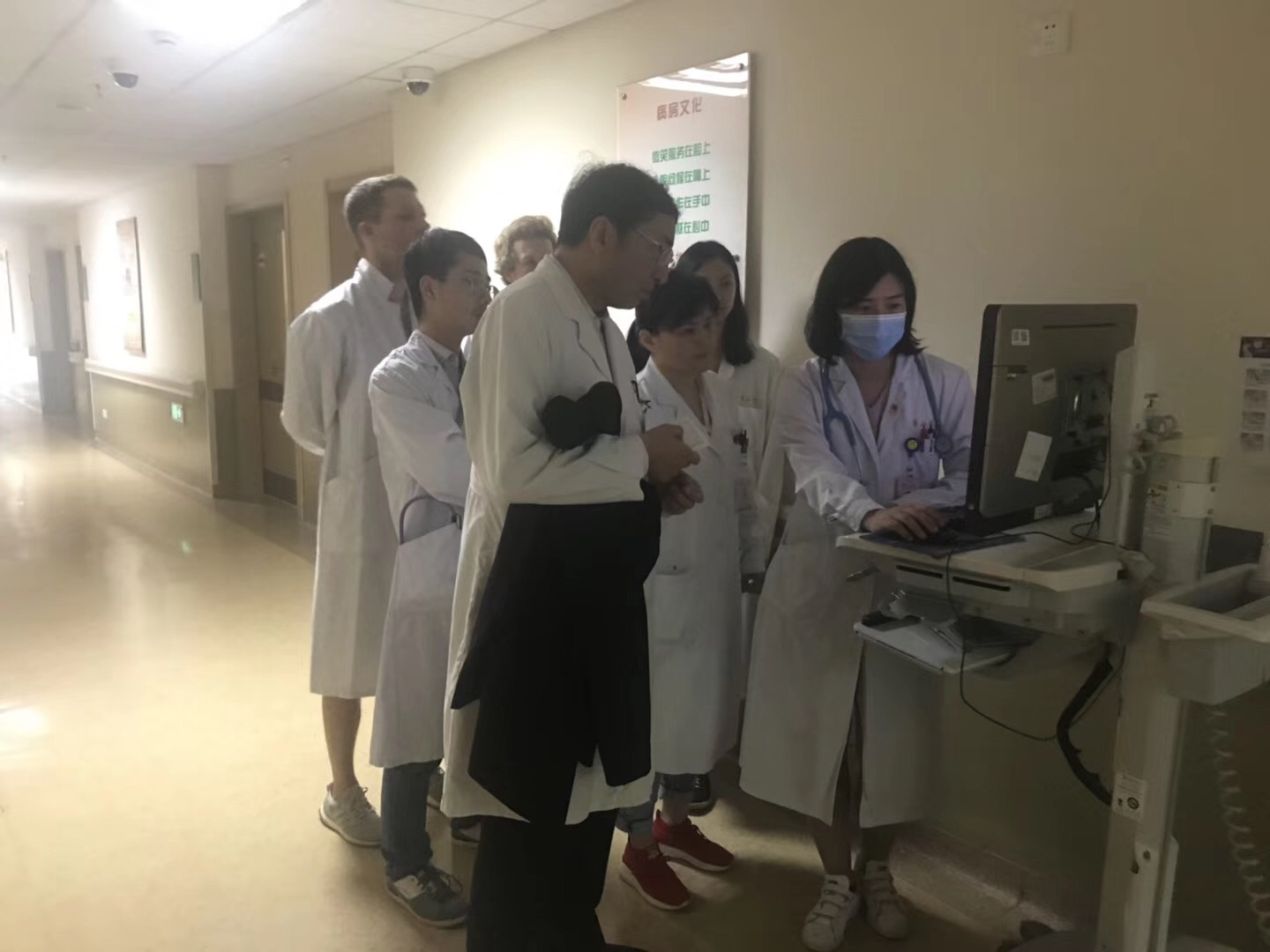
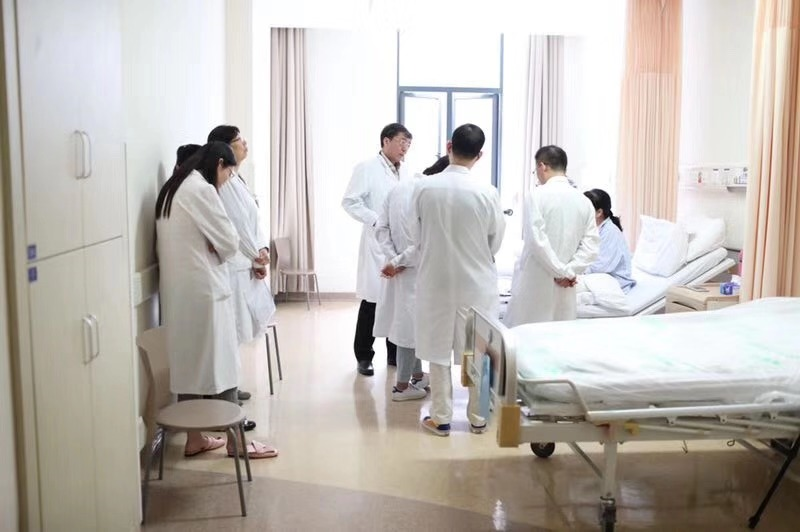
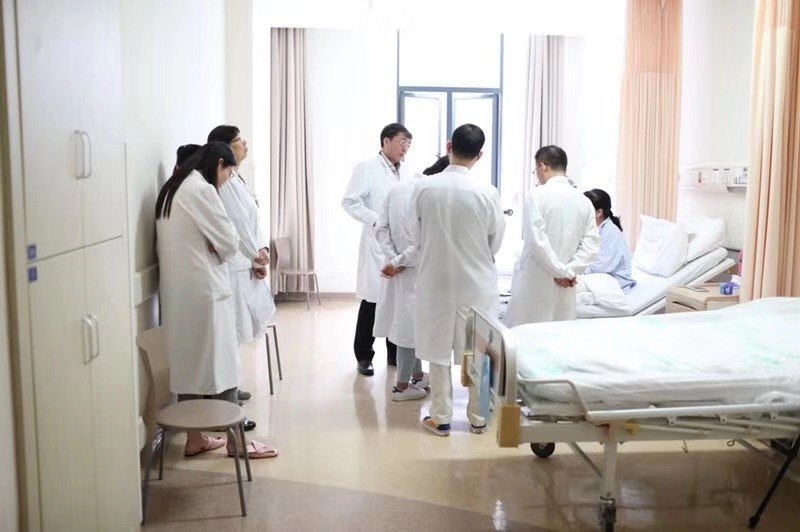
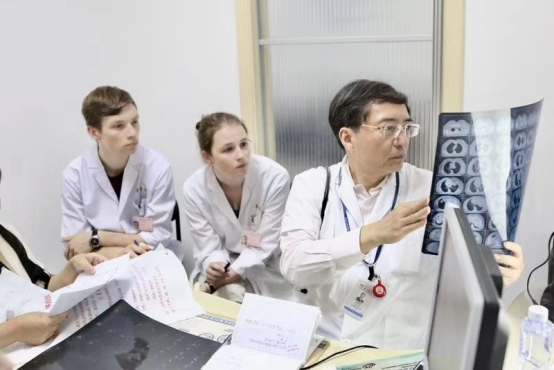
Prof. Dong at work
Dong said he was grateful to the free academic atmosphere in Fudan where he has studied and working for years. For him, such atmosphere is crucial to innovative research. He also hoped his students can fully utilize such atmosphere and work still harder to promote the development of Chinese Traditional Medicine, especially in such an era when traditional medicine has been gathering momentum.
“I hope that Chinese Traditional Medicine can be better understood and applied by more people, and even lead the world in traditional medicine one day,” said Dong.

